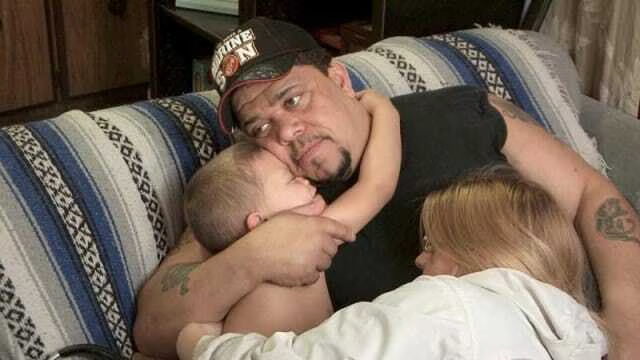The Inertia of Poverty

I think we’re about to see poverty in a dramatically new way.
The change in how we think about it, and therefore how we handle it, will be similar to the change that has come to our understanding of mental illness in the past 30 years.
Basically, it’ll go from "He shouldn’t be like that.", to, "Well, we know what he has, and we should get him some help."
That’s a big change.
Not being an expert any of this, here’s a rough outline of how I think this will unfold.
The new view of poverty
Poverty will soon be seen as a cycle of unhealthy behavior, similar to a disorder like depression or bipolar.
As we understand more about the brain, and its relationship to behavior, we’ll start to see and link dozens of negative patterns together to form some kind of Negative Feedback Loop.
And it will be physical, i.e. chemical or genetic, not just "Well, you can just choose to be happy.", or, "You can just choose to be an A-player!".
And just like our handling of depression and similar diseases has changed drastically in the last 15 years, so too will our handling of poverty.
A look at the negative cycles
I think we’ll see poverty as having multiple linked behaviors and effects, including the following:
Willpower is being shown to be a depletable resource that has bad effects on behavior when it is exhausted
Willpower is strongly tied to diet and sleep
The poor have bad diets and are unable to get good sleep
It’s true that the poor make bad decisions with what to do with their income and such, but it’s also true that education and willpower are two things that help the making of good decisions, and the poor often have neither (see diet and sleep)
Low blood sugar causes a lack of willpower, and diabetes is the roller-coaster of blood sugar levels
Bad diets lead to diabetes
Stress affects sleep
Stress affects the ability to maintain willpower, which in turn affects the ability to make good decisions
Being treated like a nobody literally turns you into a nobody
Being told you cannot succeed creates people who cannot succeed
The result of all of this is simple: poverty turns out to have an inertia of its own, and all the associated behaviors feed on each other, keeping people in it.
This should not become some liberal cause that grants immunity from bad decisions. Why? Because it’s not helpful.
People should behave as if they are in control, and undergo treatments as if they are suffering from a disease they are not in control of.
This contradiction is transparent and lacks deception, and it’s simply the most practical way to help people improve their lives.
Notes
I am aware that there are many people who have been told all their lives they were garbage, and they never believed it. And they went on to become great. But this is not most people. Most people believe what they hear, when it’s said enough times.
When I’m talking about the poor here I’m mostly talking about the working poor in developed countries, i.e. people working multiple jobs and who earn very little, have no education, their kids won’t be educated, and who don’t have savings or retirement. I’m not talking about the poor in the developing world. That’s a whole separate issue.